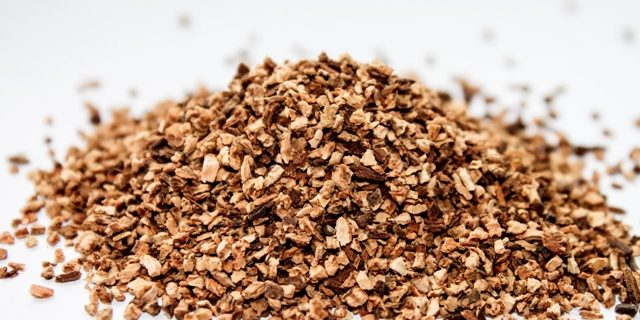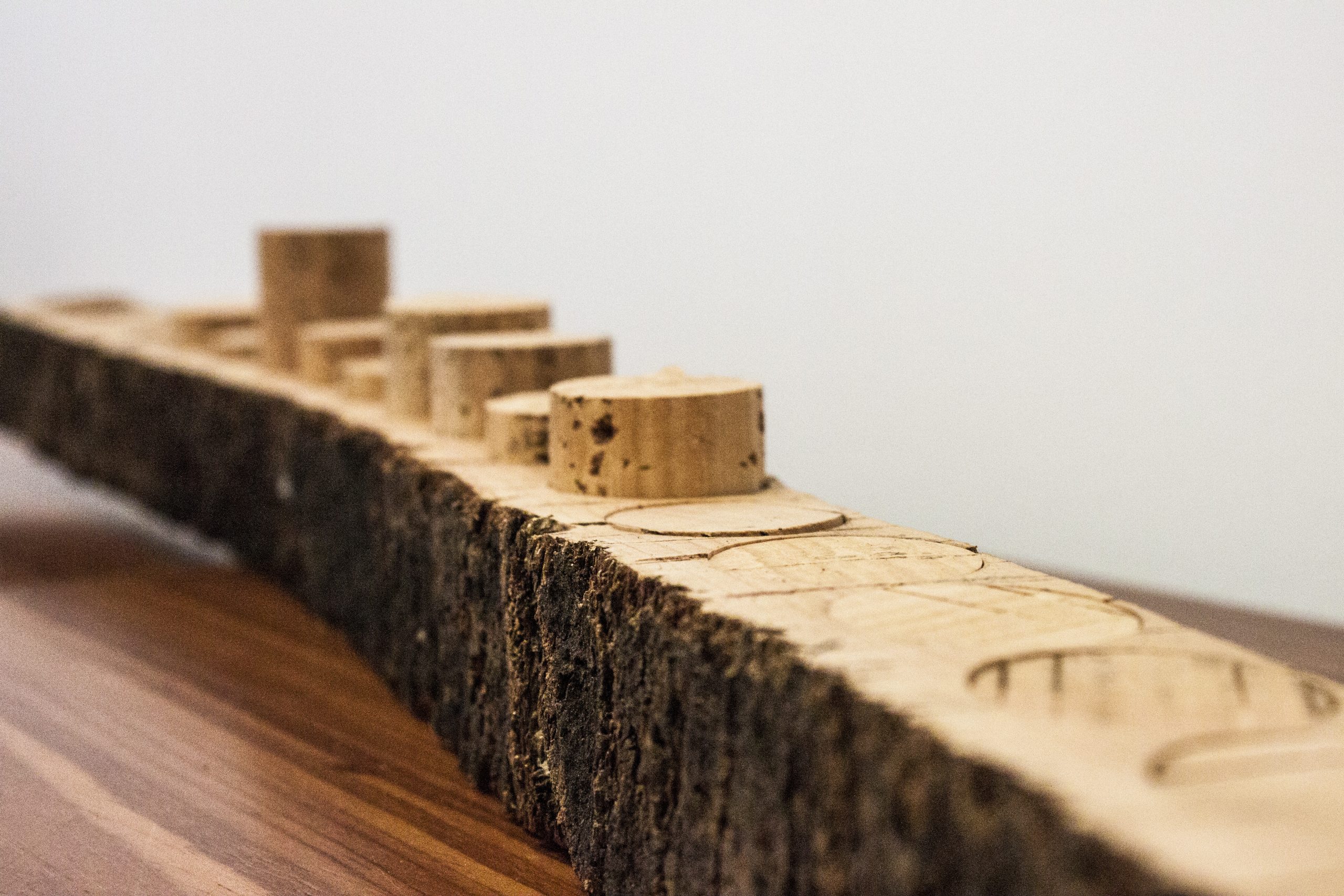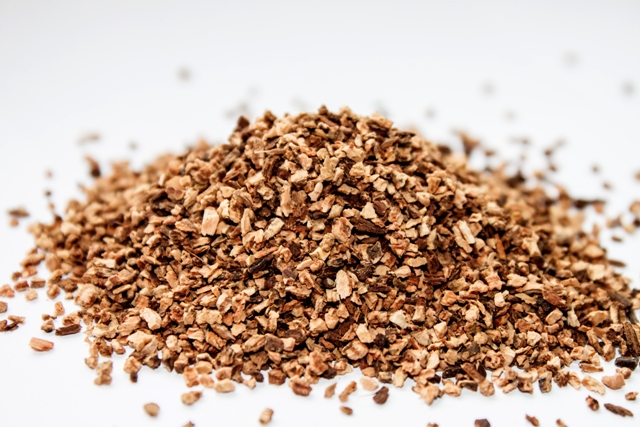We supply cork granules direct from our facilities in Portugal to customers all round the world. We regularly get asked about the options for different densities and the reasons that costs vary so much for different densities, so here is an explanation.
It is useful to understand how cork granules are made: cork bark is peeled off the cork oak trees in varying thicknesses. The softest (lowest density) cork come from the layer of the bark from nearest the tree, whilst the outside layer of the bark will be of much darker colour and will look and feel much more like wood than cork. So in between the two surfaces of the cork bark will be a spectrum of different cork densities. The lower density cork is the most prized, because it is more elastic and has more uniform appearance, so will generally be used for high quality natural wine corks, which are punched out of the strips of bark as you can see in this photo:
Note how the corks are being taken from nearest the edge opposite to the dark, woody outside bark. Once these high quality corks have been removed, the remaining bark is sent to be granulated in a crusher. You can see that these strips of cork that go through the crusher will contain a mixture of densities of granules, because of course not all the lower density cork can be removed when the natural cork are punched out.
Then the granulated cork is sorted by granule size and by density, using mesh to size the granules and simple shaking tables that sort the granules by weight to separate them into different densities. The lower density granules can then be used to make agglomerated and micro-agglomerated corks (effectively these granules are glued together to make corks). The higher density granules cannot be used for this, because they do not provide sufficient elasticity and also contain woody particles from the outside bark and you can see below an example of these granules here:
You can see that because of the much more desirable mechanical and aesthetic properties of the lower density cork, it is much more in demand than granules of higher densities, which are generally used for things like cork underlay, insulation and so on.
The lowest density cork granules will be of around 60 kg/m3 and the highest density up to 220 kg/m3 and depending on the exact specification, prices can vary from €4 per kg for the lowest densities down to €1 per kg for the higher densities. If you need a cork granules supplier, then please contact us at CorkLink for more information.









